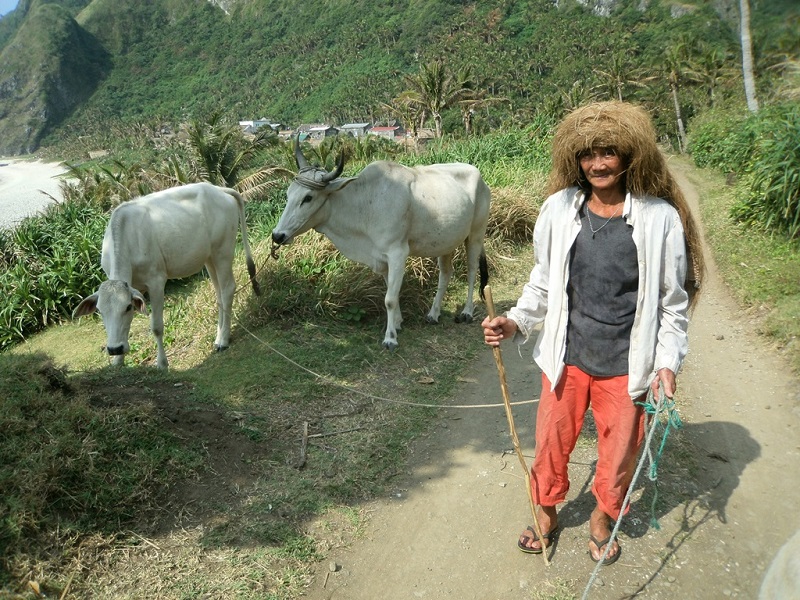
Batanes is being eyed by the Department of Agriculture as possible source of the country’s first organic beef ‘tapa’ export. Here an Ivatan farmer tends to her cows. DON LEJANO/INQUIRER.net
MANILA, Philippines—The Department of Agriculture (DA) is looking at Vuhus Island in Batanes as a possible source of the country’s first ever organic beef ‘tapa’ export. ‘Tapa’ is Pilipino term for dried or smoked meat.
Agriculture Secretary Proceso Alcala made this declaration during his visit to the province last Feb. 7 to check on the department’s ongoing projects there.
“This is an improvement for the livelihood of our people. This is an improvement for their food security,” Alcala said during a formal turn-over of certificates for the P5-million worth of projects in support of organic cattle raising at the Sabtang National School of Fisheries (SNSF) in Sabtang town.
The secretary led the ceremonial launch of a multi-species hatchery inside the SNSF compound and distribution of certificates for fish cage livelihood initiatives for fisher folk groups.
“This is a great development for Sabtang which primary sources of livelihood are agriculture and fishery,” said Sabtang Mayor Maxilindo Babalo.
Alcala, meanwhile said, cattle raisers will be assisted in obtaining a fair trade certification to be able to compete in the global markets.
According to him, DA undersecretary for Livestock Jose Reano will be sent to Batanes to personally check on the status of the livestock industry and come up with an industry roadmap, including the development of the organic tapa production.
He also instructed the Bureau of Soils and Water Management to study the possible establishment of water impounding facilities on Vuhos island and other parts of Batanes given the water scarcity problem in the province that affect food production activities.
The DA Batanes Experiment Station (BES) said that Vuhos Island currently has a cattle population of 800 heads.
Batanes Representative Henedina Abad said investments in farm and fishery industry, both from local and national governments are crucial for the overall socio-economic growth of the province.
“Given the abundance of their fishery resources, Batanes fishers could earn more if they start processing their catch, notably squid into “pusit flakes” and “dibang” or flying fish into tomato sauce, paksiw (vinegar stew), and Spanish-style sardines’ variants,” Alcala said.
He added the Bureau of Fisheries and Aquatic Resources (BFAR) region II will provide the necessary assistance to pilot ‘pusit’ flakes production, as well as expand its existing trainings for local fisher folks.
Alcala urged a stronger partnership between BFAR and the SNSF, the only fishery school in Batanes in the implementation of 16 on-going livelihood projects and two community-based multi-species hatcheries in the province, including the one he inaugurated.
RELATED STORIES
Top architect is Ivatan, wants to preserve Batanes heritage
Tourists keep Batanes pristine and profitable
PAL Express flies to Batanes May 1

